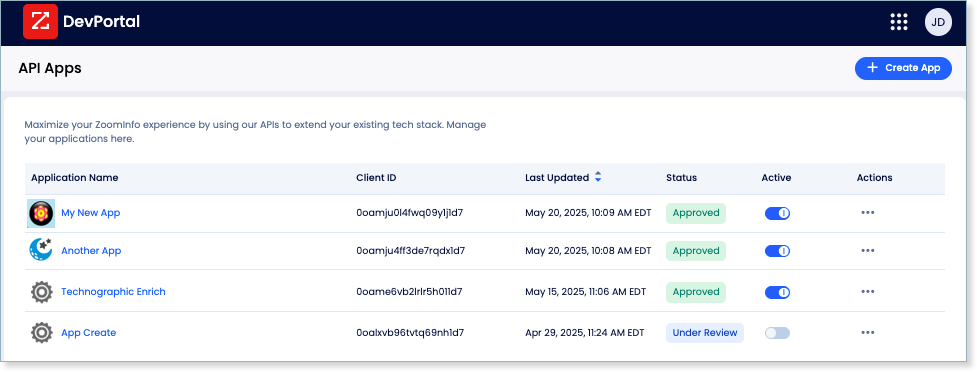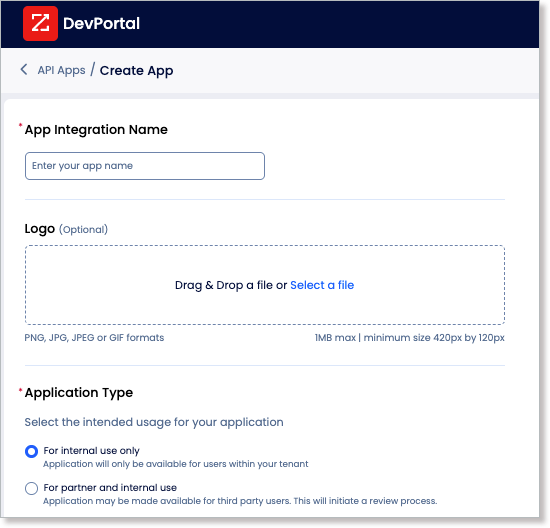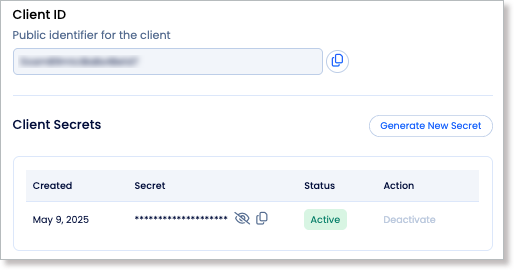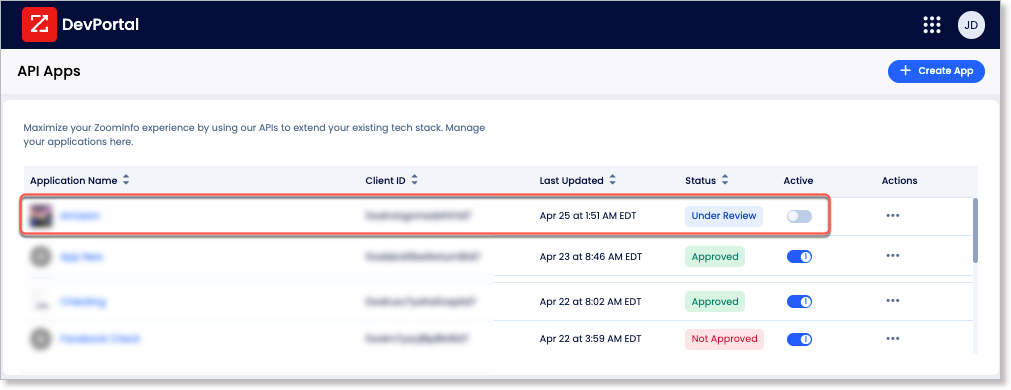App Creation - Developer Portal Guide
Okta Partner App Creation
Partners and customers building custom applications that access ZoomInfo APIs must create an Okta application to authenticate and authorize users. This setup involves configuring an OpenID Connect (OIDC) application, specifying redirect URIs, and obtaining client credentials.
Proper configuration of security settings and access permissions is essential for ensuring secure and seamless integration with the ZoomInfo API.
ZoomInfo Developer Portal
To streamline the application setup process, ZoomInfo provides a dedicated Developer Portal.
Overview
The ZoomInfo Developer Portal is a centralized platform for managing custom applications built on ZoomInfo APIs. Through the portal, customers and partners can:
- Register new applications
- Define and manage OAuth 2.0 scopes
- Generate and rotate security credentials
- View and update existing application configurations
By registering applications with ZoomInfo's Okta identity provider, partners can securely enable OAuth 2.0 authentication for scalable, standards-compliant access to ZoomInfo APIs.

Prerequisites
Before creating and registering an application through the ZoomInfo Developer Portal, ensure the following requirements are met:
- Your organization must have an Enterprise API or Copilot package (or both).
- A ZoomInfo admin must assign the DevPortal subscription to users or developers who will access the portal.
To assign the DevPortal subscription:
- Navigate to Admin Portal > User Management > Users.
- Select the appropriate user.
- In the Subscription dropdown, select DevPortal, and save the update.
- The user will see the DevPortal option in the waffle menu the next time they log in.
Application Types
The ZoomInfo DevPortal supports the creation of two types of applications:
Custom Applications for Internal Use
- Created and managed by customers within their own organization.
- Intended for internal usage of ZoomInfo data.
- Automatically approved upon registration in the DevPortal.
Partner Applications for Third-Party and Internal Use
- Developed by partners for external user access (across tenant boundaries).
- Must be reviewed and approved by ZoomInfo's API and Partnership product teams.
- Access is restricted until the approval process is completed.
- Customers attempting to register a Partner Application without prior approval will be denied.
App Registration and Authentication
ZoomInfo uses Okta, a standards-compliant OAuth 2.0 server, to manage secure app registration and authentication.
Upon registering a new application in the DevPortal:
- You will receive a Client ID and Client Secret.
- These credentials enable your app to securely authenticate with ZoomInfo's API.
- When a user accesses your application, the app connects directly with Okta.
- Okta authenticates the user and authorizes access to requested data based on the user’s assigned permissions and scopes.
ZoomInfo API Scopes and Endpoints
Each registered application must be assigned one or more OAuth scopes. Scopes define the specific types of data and actions the application can access.
- Only assign the scopes necessary for your application's functionality.
- Partner Applications may have additional restrictions on scope assignments.
- API access is controlled by both the assigned scopes and the user’s access permissions.
Refer to the API documentation for a complete list of available scopes and corresponding endpoints.
Available Scopes
| Category | Description | Display Name | Scope Value |
|---|---|---|---|
| Copilot | Read and access account summary features | Read Account Summaries | api:account-summary:read |
| Marketing | Create and Manage Audiences | Manage Audiences | api:audience:manage |
| Read Audiences | Read Audiences | api:audience:read | |
| Create and Manage Audience Members | Manage Audience Members | api:audience-member:manage | |
| Read Audience Members | Read Audience Members | api:audience-member:read | |
| Data | Search and enrich ZoomInfo Contact data | Contact | api:data:contact |
| Search and enrich ZoomInfo Company data | Company | api:data:company | |
| Search and enrich ZoomInfo Scoops data | Scoops | api:data:scoops | |
| Search and enrich ZoomInfo News data | News | api:data:news | |
| Search and enrich ZoomInfo Intent data | Intent | api:data:intent |
Creating an Internal Use App
Develop a custom app for use within your organization which will receive automatic approval for immediate deployment.
Step-by-Step Guide
-
Access the DevPortal
- Navigate to the ZoomInfo Developer Portal
-
Create New App
- Click Create App to register a new application

-
Provide App Details
- Enter app name and upload logo
- Select "For internal use only" for the Application Type

-
Configure Redirect URIs
- Set up Sign-in redirect URIs
- ZoomInfo will send authentication responses and ID tokens to these URIs

-
Select Access Scopes
- Choose required access scopes
- Expand available scopes to select specific endpoints
- Refer to the ZoomInfo API Scopes section for details

-
Create and Deploy
- Click Create

- The app is immediately created and approved

- Click the app link to retrieve your OAuth Client ID and Client Secret

Creating an App for Partner and Internal Use
Approved Partners can create apps intended for third-party users (outside their organization) as well as internal users.
Prerequisites: This option should only be used by partners who have already completed the additional contracting and approval process. If you're interested in becoming an approved partner, please visit https://www.zoominfo.com/partner
Configuration Steps
-
Create App
- Select "For partner and internal use" for the Application Type
- Complete the configuration as outlined in the internal use guide

-
Review Process
- Once created, the app will be listed in an "Under Review" state

- Partners must collaborate with the ZoomInfo API and Partnership product teams
- The app will be approved if all criteria are met
Support and Resources
- 🤝 Partnership Program: https://www.zoominfo.com/partner
- 💬 Developer Support: Contact your ZoomInfo representative
Last updated: December 2025
Updated about 2 months ago